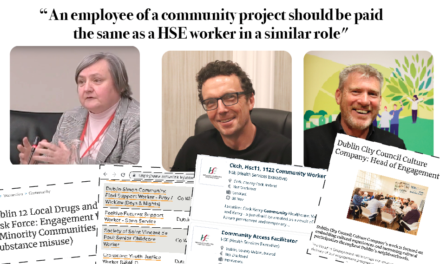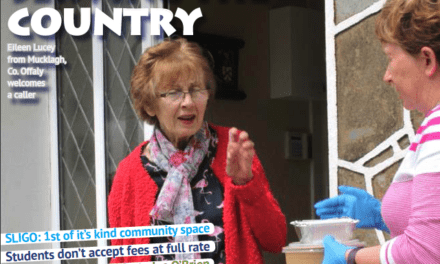Social prescribers in 30 locations nationwide help people struggling with social isolation to take part in activities and get out and about
A survey carried out by AXA earlier this year revealed that loneliness was a major challenge for many Irish people, with 60% of men and 67% of women saying they had felt lonely during the previous four weeks.
Google ‘the effects of loneliness on health’, and a list of scholarly articles appears featuring some alarming statistics, with one piece of research even stating that it increases the risk of early death.
Loneliness has also been linked to a higher risk of dementia, mental health conditions, and even cardiovascular disease and stroke.
It’s no surprise then that public health workers in Ireland have begun taking it seriously in the last five years.
There are now HSE-funded social prescribing services available in 30 locations nationwide, where GPs and other health professionals can refer patients who are struggling with social isolation.
Pauline Mangan is a social prescriber and community development worker with Empower Local Development in Dublin 15.
She told Changing Ireland: “The idea is that it’s a kind of social prescription. So it’s for people that may go to the GP for various reasons. And really what they need is less a medical intervention, but more a social intervention. A lot of the time people go to GPs for loneliness, for mental health issues and stuff like that, or because they’re isolated or whatnot, and obviously that contributes to their health and wellbeing.
“A GP can refer someone to a social prescriber in their local area, and the social prescriber would work with them and develop a health and wellbeing plan, looking at what matters to them. The wording they use in the HSE is: ‘You go to your GP to see what’s the matter with you, whereas a social prescriber asks: What matters to you, what’s important to you, and what has happened that’s brought you to us?’.”
“We develop a health and wellbeing plan, look at what their needs are, what their priorities are, what goals they may have. From that we will develop some actions based on what their interest is in, what’s available locally, and we would support them to engage in different activities and groups and courses. It really is as simple as that, but it’s done at the individual’s pace.
“The support is as much or as little as the individual might need. Some clients have very little confidence or have been socially isolated for quite some time, so they may need a little bit of handholding. You may go along with them to a group. Others just need a bit of signposting and they’re perfectly able to go off and sort things out for themselves.”
Many of Pauline’s clients are recovering from mental health issues, or became isolated because English is not their first language.
“The reason that people tend to get referred to us will be loneliness and social isolation, depression, bereavement, recovering from addiction, physical inactivity. After Covid-19, particularly for older people, it was a struggle getting the confidence to go back out again and engage. People with intellectual disabilities often find they’re quite isolated once they finish the State schooling and the support that they’ve had. People who are unemployed, people who have long term illnesses (also avail of the service).”
She continued: “A lot of the time it’s around finding a local group that they can get involved in, or an activity such as arts and crafts. A lot of people like to do an activity as a way of getting in there first because they don’t feel under pressure to talk in a group.
“It’s looking at what the local community centres are offering, what adult education are offering, local activities and courses, women’s groups, volunteering, parent and toddler groups – anything that people really feel they need. English language classes, even walking groups.
“Other times people need a lot of help navigating the State services. Whether it’s to do with housing, benefits, sometimes you’re supporting them with that kind of stuff first.”
The service has received overwhelmingly positive feedback from both referrers and service users.
Pauline revealed: “I did a case study last year with one of my clients who had done quite well. She said she felt she got her own voice back, she’d started to see that she is ‘worth something again’. And she said: ‘I’d probably be circling around my own apartment. I wouldn’t know where to go, what door to knock on, that (social prescribing) gave me opportunities that I didn’t know existed’.”





